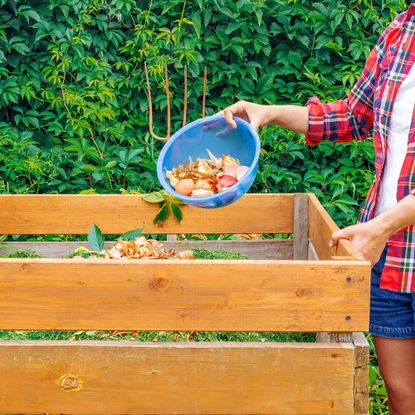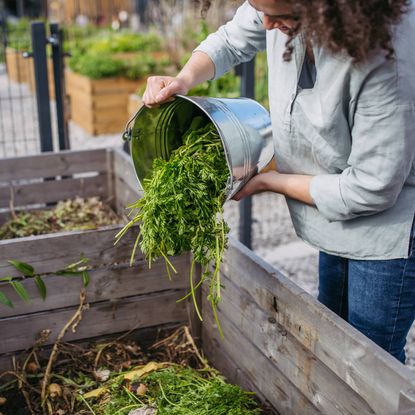Composting
Composting is the way to turn your kitchen and garden scraps into pure gold for your garden. The payoff is huge, but it does take some know how to get it right. We've got vermicomposting, compost use and maintenance, manure composting, and what you can and can't add to your compost pile.
Explore Composting
-
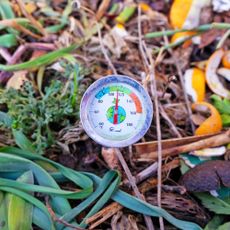
Hot Composting Guide: The Faster Way To Make Rich, Organic Compost At Home
Turn kitchen scraps and garden waste into wonderfully rich compost in just a few weeks by learning the art of hot composting.
By Mary Ellen Ellis
-
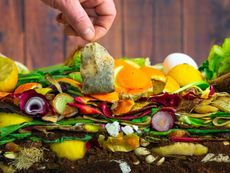
Are Tea Bags Good For Plants? Tips For Composting Tea Bags
Tea bags and plants -- a good way to fertilize if the bags are made from natural fibers and if the plants like a little acid in their soil.
By Amy Grant
-
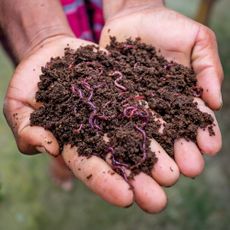
Vermicomposting Guide: How To Make Amazing Organic Compost With Worms
Harnessing the power of worms is the secret to creating the most nutritious compost imaginable. Try vermicomposting to turn food waste into garden gold.
By Mary Ellen Ellis
-

Composting Paper: A Complete Guide To Transforming Different Types Into Garden Gold
Reduce waste and learn the secrets of composting paper at home with our guide to demystifying which types can enrich your garden – and which to avoid.
By Amy Grant
-
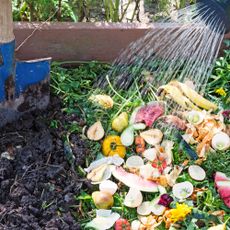
Winter Composting Shortcuts: 5 Easy Ways To Fill Garden Beds And Pots In Time For Spring
Don't stop composting over winter. Supercharge your pile with these quick, clever techniques that will get beds and pots ready to plant come springtime.
By Melanie Griffiths
-
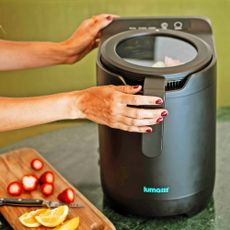
How To Buy The Best Electric Composter: Read This Before Spending $100s On A Countertop Food Recycler
Electric composters and countertop food recyclers offer a super-fast solution to tackling food waste – and can help create nutrient-rich compost. Choose the best model for your needs with our expert guide.
By Melanie Griffiths
-
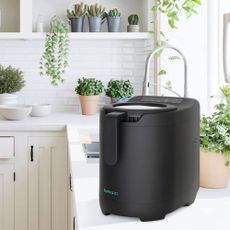
Electric Composter Guide: Are Countertop Food Recyclers The Future Of Sustainability?
Discover how electric composters work, their benefits and limitations – and whether they're worth the investment as a sustainable easy win.
By Melanie Griffiths
-
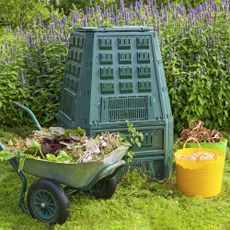
How To Compost At Home: The Ultimate Step-By-Step Guide
Composting is an affordable, sustainable solution for creating the best possible soil improver. Discover your ideal method, steps for success, and how to get the most out of your homemade black gold.
By Melanie Griffiths
-
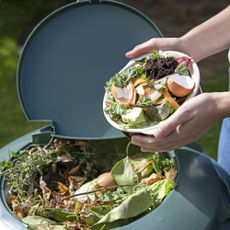
8 Ways To Speed Up Composting: Easy Solutions For An Organic Garden
Homemade compost is a mainstay of organic gardening, but it can take a year or more to develop. Learn how to accelerate composting, without sacrificing quality.
By Bonnie L. Grant
-
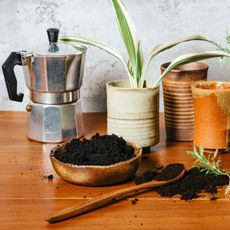
Give Compost A Pick Me Up: How To Use Coffee Grounds On Plants In The Garden
Coffee is not just a mood booster for people – it can also give your garden a helping hand if applied correctly. We show you how to add coffee grounds on plants so they flourish
By Teo Spengler
-
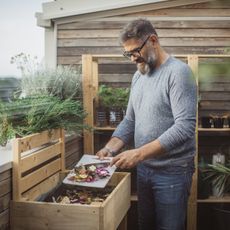
Urban Composting Guide: How To Compost In The Middle Of The City
Urban composting does not have to be daunting. You can compost in the city, and maybe even try some urban worm composting!
By Mary Ellen Ellis
-
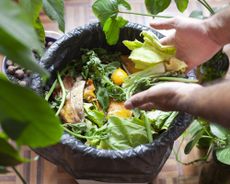
12 Composting Mistakes That Will Ruin Your Stash – And How To Fix Them
Making good compost is a real art. It requires a careful materials balance, regular intervention, and a lot of patience. Discover the common pitfalls to avoid – and what to do if it all goes wrong.
By Melanie Griffiths
-
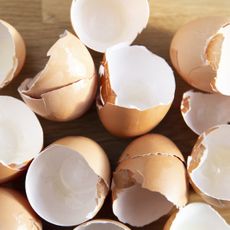
What To Do With Eggshells Before Composting Them
By Mary Ellen Ellis
-
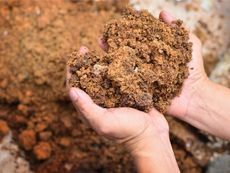
Is Mushroom Compost Good For All Plants?
Mushroom compost is great for some plants, but some dislike it. Learn which plants would rather not get a dose of mushroom compost.
By Amy Grant
-
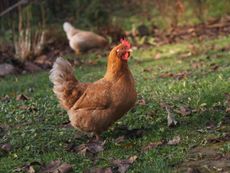
Using Chicken Manure Fertilizer In Your Garden
Chicken manure is excellent as a plant fertilizer, but there are some things you need to know. Read on for more about chicken manure compost.
By Heather Rhoades
-
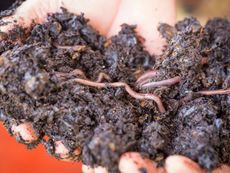
Vermicompost Worm Amount: How Many Composting Worms Do I Need
Vermicomposting is quite simple, still many gardeners wonder, ‘How many composting worms do I need?” This article can help with that.
By Tonya Barnett
-
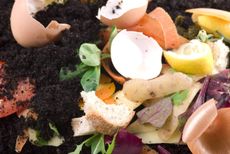
Composting Fruit And Vegetable Waste – Should You Cut Up Compost Scraps
Should you cut up compost scraps? Shredding scraps for composting is a common practice, but you may have wondered if this practice is necessary or even effective. Click this article to find out more about composting fruit and vegetable waste.
By Ilana Goldowitz Jimenez
